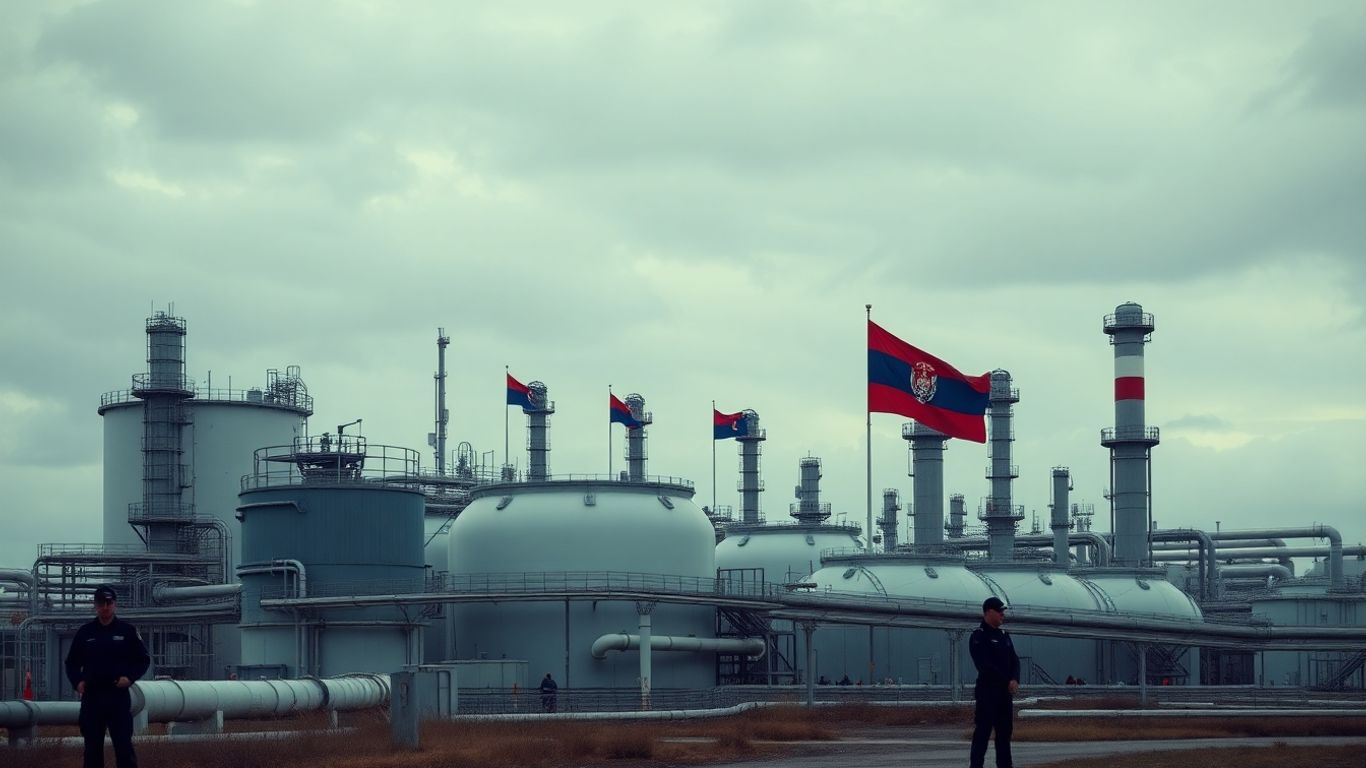Serbia’s largest oil refiner, NIS, majority-owned by Russia’s Gazprom, faces a race against time to comply with US sanctions as it seeks special waivers, stake sales, and policy changes to secure its energy lifeline. The United States has granted NIS a short-term sanctions waiver, allowing continued operation until October 8.
Key Takeaways
- US has postponed sanctions on Serbia’s NIS until October 8 with a temporary waiver.
- Gazprom considers selling part of its stake in NIS to reduce Russian control.
- Serbia’s energy security and supply chain are at risk if sanctions proceed.
- NIS is exploring US crude imports as a compliance measure.
Background: Why NIS Faces Sanctions
In January, the US targeted Russia’s oil sector, directly impacting Serbian refiner NIS due to majority stakeholdings by Gazprom and its oil arm. With new sanctions scheduled to take effect, NIS was given multiple temporary waivers while the company sought ways to reduce Russian ownership and avoid operational disruption.
Gazprom’s Proposed Exit: Potential Stake Sale
To address the core issue of Russian control, the Russian owners have proposed reducing their share by selling an estimated 11.3% stake in NIS. This move is aimed at assuaging US concerns. Currently, Gazprom Neft holds about 44.9%, Gazprom itself roughly 11.3%, and the Serbian government 29.9% of NIS capital. A reduced Russian presence could allow NIS to remain outside the scope of punitive US measures.
Supply Threats and Energy Security Risks
NIS operates Serbia’s sole refinery in Pancevo, a facility with a 4.8 million ton annual capacity that covers the vast majority of the country’s oil, diesel, and aviation fuel needs. Sanction enforcement would jeopardize the refinery’s crude imports, especially given its reliance on Croatia’s Janaf pipeline, which received a matching license to continue operations only until October 8. Serbian officials warn that disruption could threaten national energy security and create widespread supply issues.
Compliance Efforts: US Crude Imports and Diplomatic Maneuvering
To further align with US regulations, proposals have surfaced for NIS to shift some crude imports to US origin, lessening Russian involvement in both ownership and supply chains. NIS has also filed repeated requests to the US authorities for licensing waivers and a removal from the sanctions list, highlighting the complex, ongoing negotiations over the refinery’s future.
What’s Next for NIS and Serbia?
The fate of NIS remains uncertain beyond October 8. Any extension of waivers would depend on concrete moves by NIS and Gazprom to delink the company from Russian control, plus diplomatic support from both Serbian and Croatian governments. Failure to secure a compromise would upend fuel supplies not only in Serbia, but potentially in the broader Balkan region reliant on Pancevo’s output.
| Stakeholder | Current Share (%) | Possible Change |
|---|---|---|
| Gazprom Neft | 44.9 | Potential reduction |
| Gazprom | 11.3 | Potential reduction |
| Republic of Serbia | 29.9 | No change |
The coming days will be critical for NIS, Gazprom, and Serbian authorities as they strive to safeguard the nation’s energy security and maintain vital supply lines amid mounting geopolitical pressure.
Further Reading
- Gazprom-Owned Serbia Refiner Offers Changes to Beat US Sanctions, Bloomberg.com.
- Serbia’s NIS granted US sanctions waiver until October 8, Reuters.
- Serbia’s Russian owned NIS files request to postpone implementation of US sanctions, Reuters.
- Russia proposes Serbia’s NIS buy US crude to avert sanctions – report | Serbia Politics News, SeeNews.
- U.S. clears Janaf to supply Serbia’s NIS with crude until Oct 8 | Southeast Europe Politics News, SeeNews.






